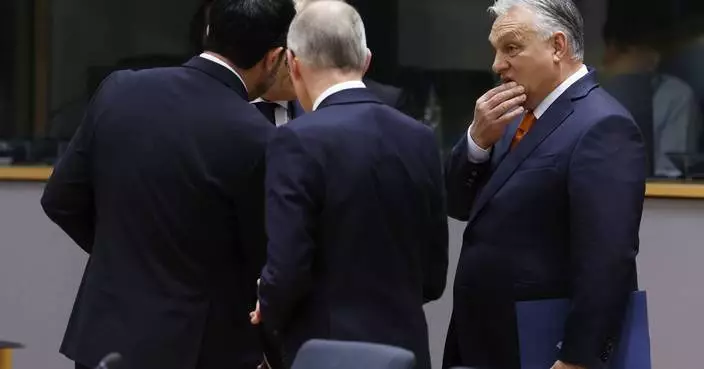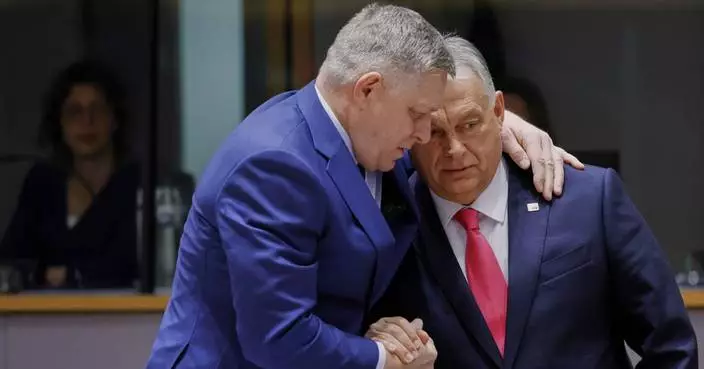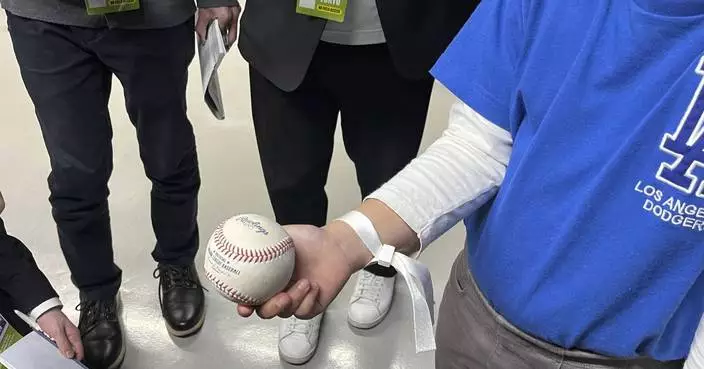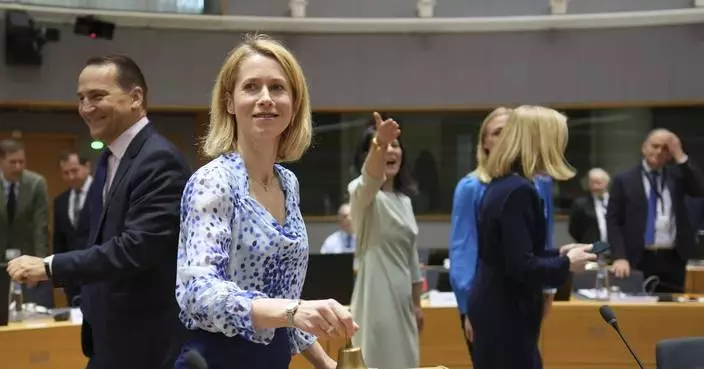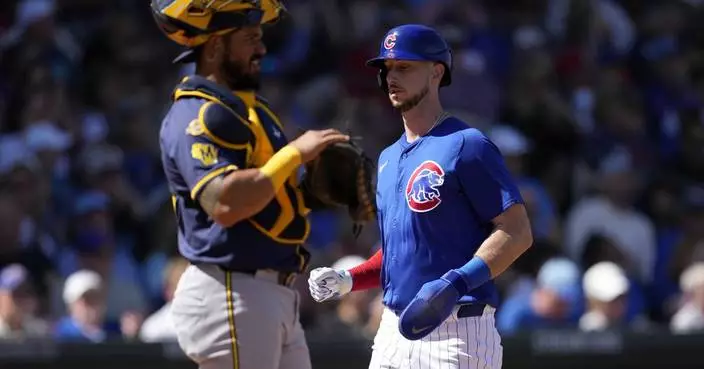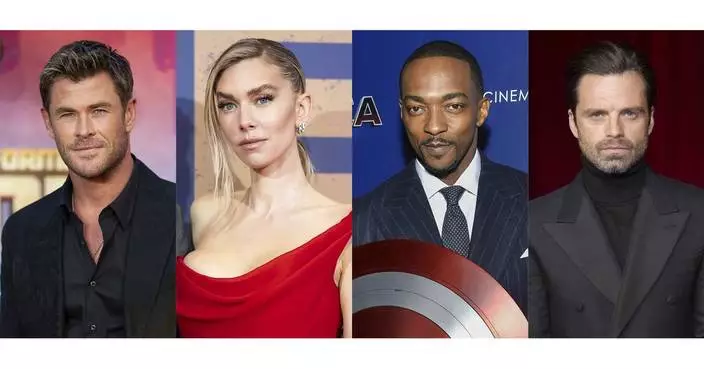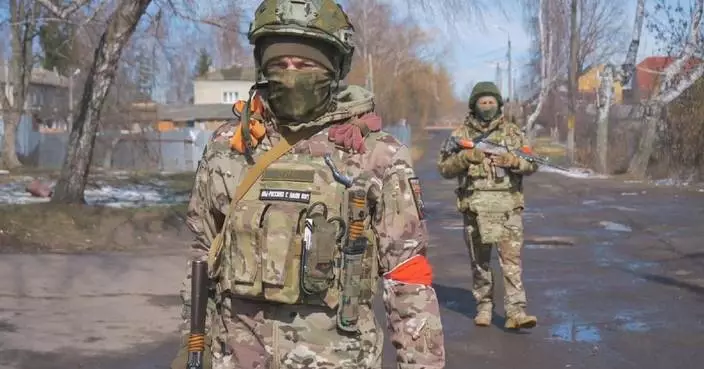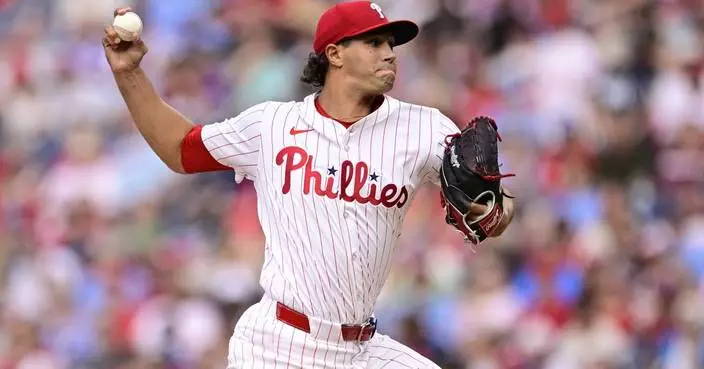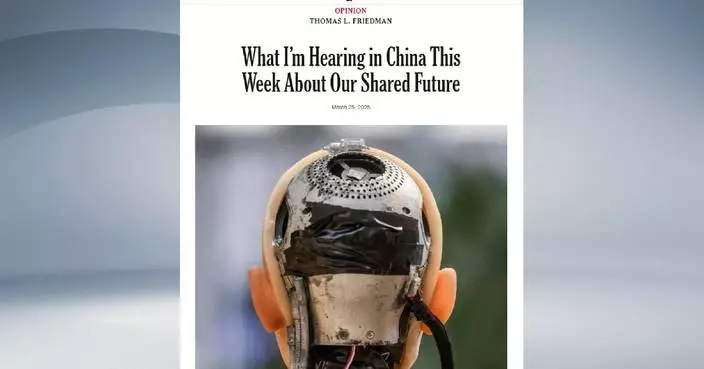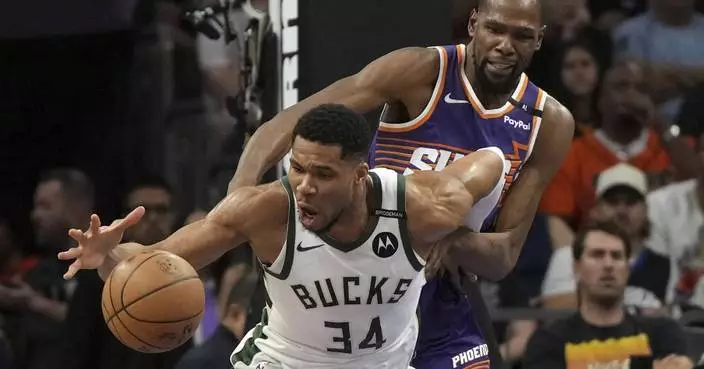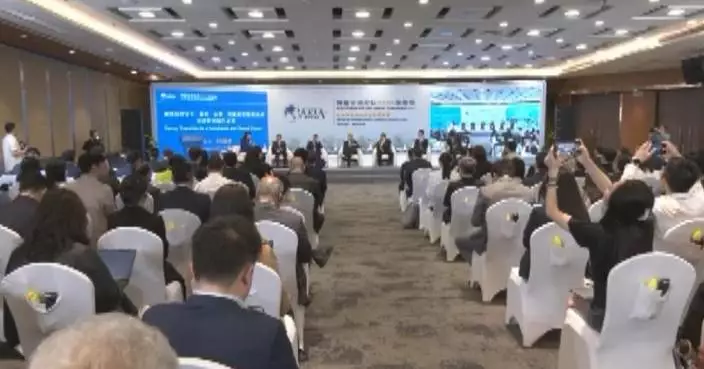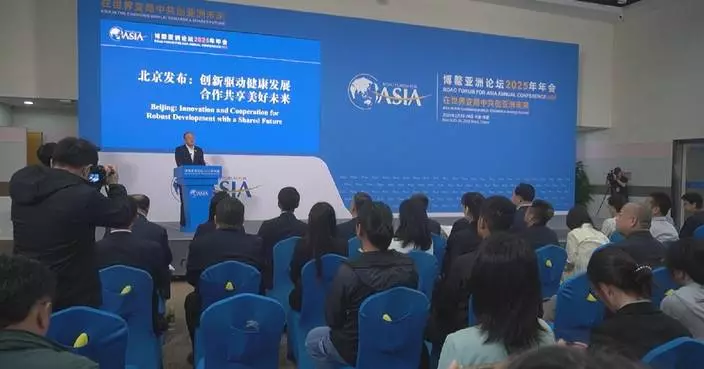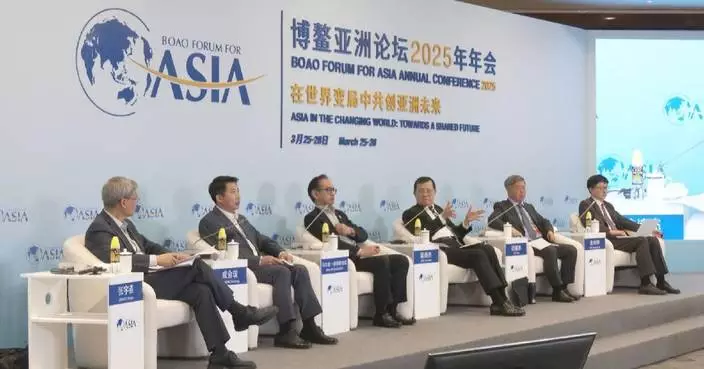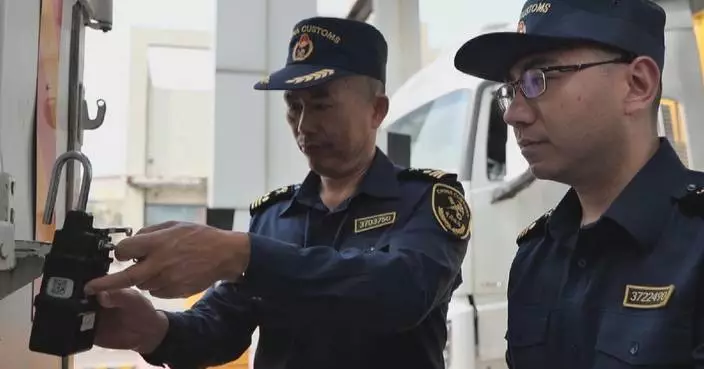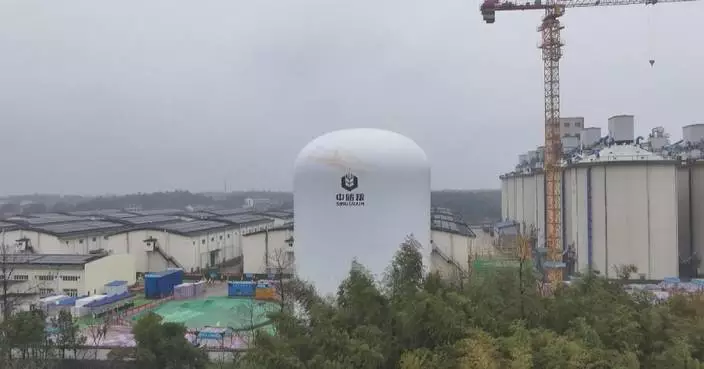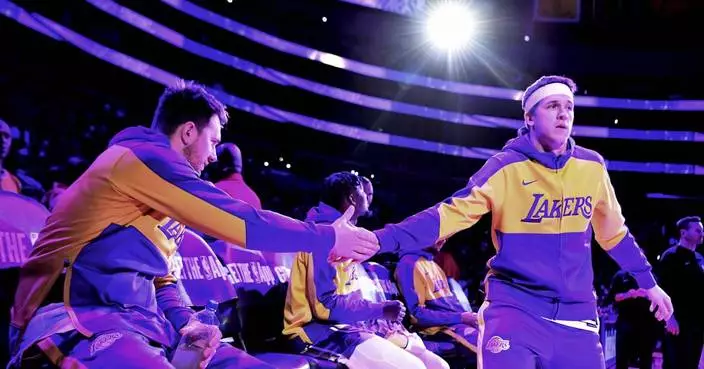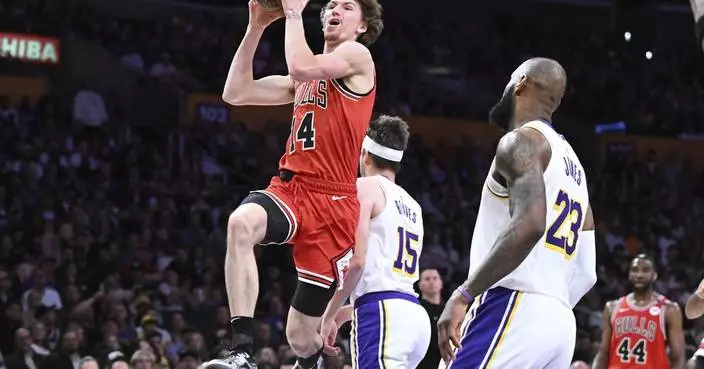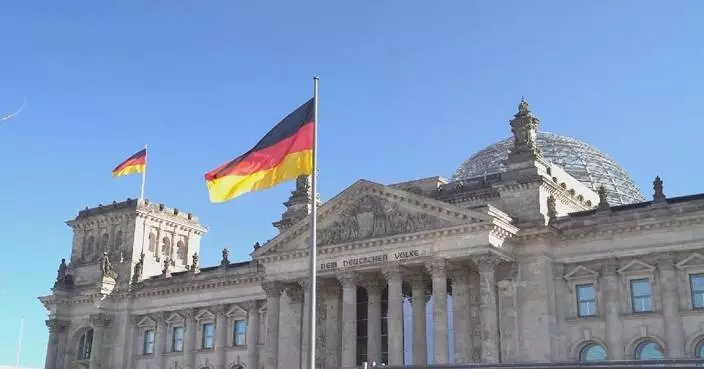Renault's chairman on Wednesday expressed his frustration with the French government for resisting a merger deal proposed by rival carmaker Fiat Chrysler, and at a critical time — ahead of what he views as a coming "tsunami" from China's auto industry.
Jean-Dominique Senard told a shareholders' meeting in Paris that "I have rarely seen a merger proposal that could give so much positive synergy, incredibly validating and robust."
He said that at a board meeting convened to discuss the plan, everyone had approved the plan "with enthusiasm" except one. Board members from Renault's alliance member, Nissan, abstained but in a "very positive way."

A hostess holds a sign of French automaker Renault Group to show the way for the Renault shareholders general meeting in Paris, France, Wednesday, June 12, 2019. (AP PhotoFrancois Mori)
Senard said the French government, which is Renault's biggest shareholder with a 15% stake, had not shared his analysis of the benefits of the merger "at this stage."
"I can frankly say that disappoints me," he said.
Senard opened to the possibility of reopening talks, saying that the merger proposal "remains in my head potentially remarkable and exceptional."
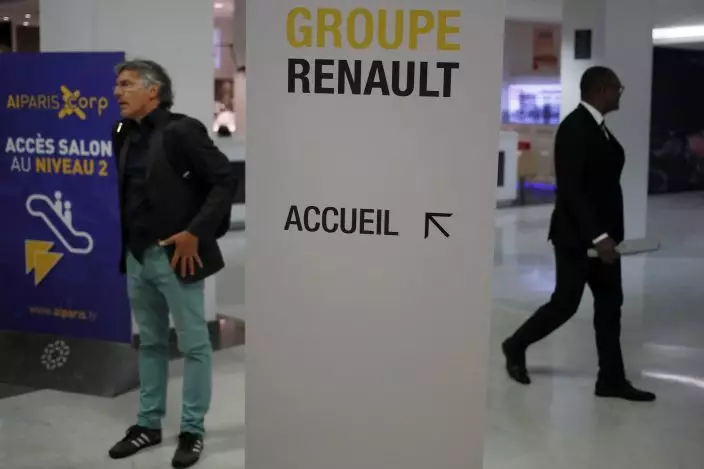
A sign of French automaker Renault Group shows the way for the Renault shareholders general meeting in Paris, France, Wednesday, June 12, 2019. (AP PhotoFrancois Mori)
Fiat Chrysler had proposed a 50-50 merger that would have created the world's third-largest carmaker worth almost $40 billion. But the role of Nissan, Renault's longtime alliance partner, was unclear and the French government wanted more time to sort out the details. Fiat Chrysler pulled the proposal, citing political conditions in France.
Renault's alliance with Nissan has become strained since the arrest last November in Tokyo of former chairman and CEO Carlos Ghosn, who is no longer in the company. Ghosn has been charged with falsifying financial reports in under-reporting compensation and breach of trust in having Nissan Motor Co. shoulder investment losses and paying a Saudi businessman.
The upheaval led to a restructuring of Renault with Senard brought in and Thierry Bollore becoming the new chief executive.
While the Ghosn saga dominated headlines for months, it was the merger failure that was on the minds of many shareholders on Wednesday.
"I was surprised to see FCA (Fiat-Chrysler Automobiles) pose an ultimatum, saying it's 'Take it or leave it and we won't let you take the time to think about it,'" said Herve Charron, a retiree heading into the meeting. "It's a bit scandalous. When the stakes are at 30 billion euros, you have to think and take your time."
Another shareholder was more philosophical.
"I was quite surprised (after negotiations with Fiat-Chrysler fell through) but that's business. Half of all mergers go awry. This one didn't even happen!" said Daniel De Rincquesen.
Answering questions from shareholders on the merger failure, Senard said the wider industry context was critical, notably looming rivalry from the fast-growing Chinese auto industry.
"We face a period in which the blossoming of the Chinese industry will probably translate into a form of tsunami" in our region, Senard said. Anticipation and strength are essential, he added.
Senard said he quickly realized that a merger with Fiat Chrysler had something for both Renault and the alliance between Renault, Nissan and Mitsubishi.
Alex Turnbull in Paris contributed.
BRUSSELS (AP) — Russian President Vladimir Putin’s key peace demand that Western allies stop providing military aid and intelligence to Ukraine is quietly being ignored by the European Union.
As U.S.-led talks with Russia and Ukraine progress, without the Europeans at the table, the 27-nation bloc is pressing ahead with a steel “porcupine strategy” aimed at building the Ukrainian armed forces, and the country’s defense industry, into an even more formidable opponent.
At an EU summit on Thursday, German Chancellor Olaf Scholz said that it’s “central” that Ukraine should remain an independent democratic nation that can continue its journey toward EU membership and “that it also has a strong army of its own after a peace agreement.”
“For us, it will be important to continue to support Ukraine significantly — as the European Union as a whole, as allies and friends and as individual countries,” Scholz told reporters in Brussels.
A few hours after he spoke, Scholz's EU counterparts — with the exception of Hungary, which opposes the bloc's “peace through strength” stance — called on member countries “to urgently step up efforts to address Ukraine’s pressing military and defence needs.”
Mindful of Russian deception in the past — the “little green men ” who annexed the Crimean Peninsula in 2014, or the troop buildup in 2021 that Moscow denied would lead to any invasion — the Europeans are deeply skeptical about Putin’s intentions and whether he would accept any peace terms.
With the U.K. and other partners, some European countries are working on a deterrence force to police any future peace. At the same time, Ukraine’s best security guarantee, apart from the NATO membership that the U.S. refuses, is that its own army is strong and well supplied.
In a defense blueprint unveiled on Wednesday, the European Commission set out how it plans to meet Ukraine’s security needs, with EU money available to help bolster its defense industry, which produces arms and ammunition more cheaply and closer to the battlefield.
“Ukraine is currently the front line of European defense, resisting a war of aggression driven by the single greatest threat to our common security,” the document says. “The outcome of that war will be a determinative factor in our collective future for decades ahead.”
At the heart of the EU’s strategy is a commitment to provide air defense systems and missiles — including long-range precision warheads. In groups, countries would jointly purchase the equipment and financially back Ukraine’s own effort to obtain them.
Drones are a major advantage on the battlefield, and the EU intends to back Ukraine’s procurement of them and help it build its own production capacity, including through joint ventures between European and Ukrainian industries.
Another aim is to provide at least 2 million rounds of large-caliber artillery shells each year, and to continue a training effort that has helped to prepare more than 75,000 Ukrainian troops so far. In return, European troops will learn from Ukraine’s front-line experience.
Ukraine would also be able to take part in the EU’s space program, with access to the services provided by national governments in the area of global positioning, navigation, surveillance and communications.
Financially, and beyond the estimated 138 billion euros ($150 billion) already provided to Ukraine, the government in Kyiv would be able to secure cheap loans for defense purposes — as can EU countries and Norway — from a new fund worth 150 billion euros ($162 billion).
Follow the AP’s coverage of the war at https://apnews.com/hub/russia-ukraine
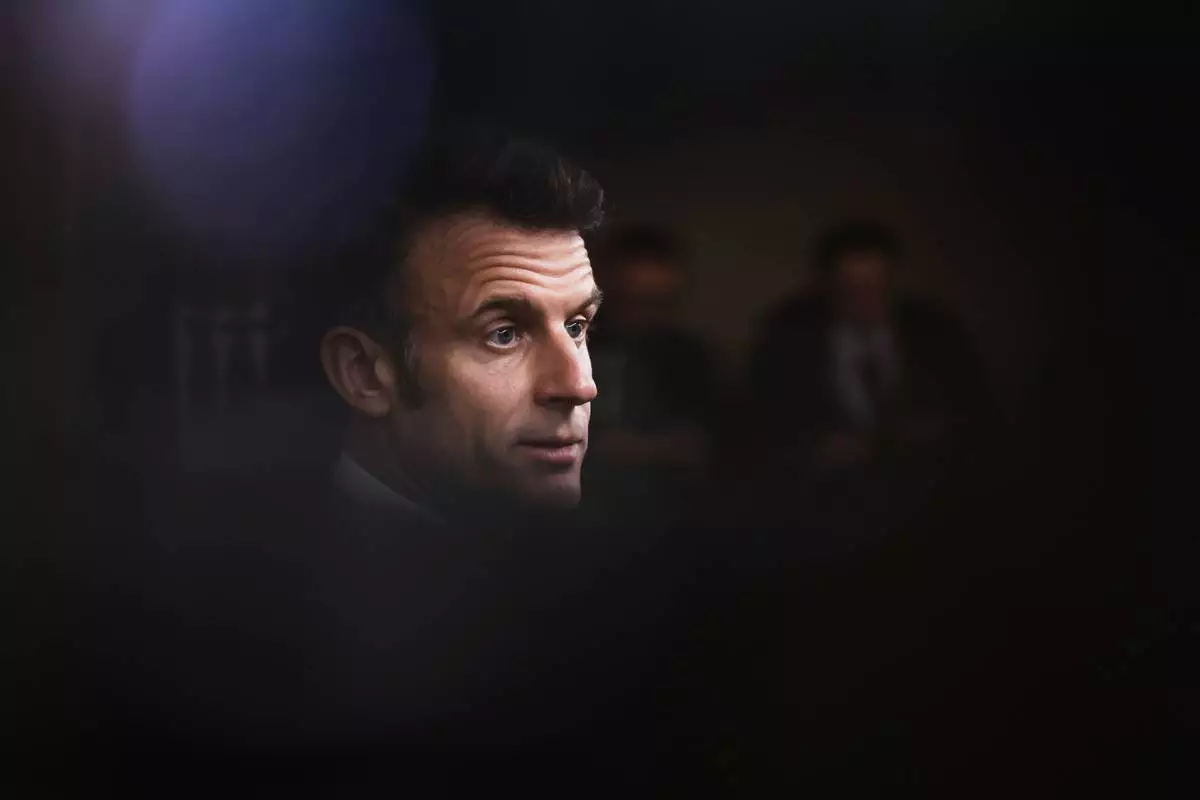
French President Emmanuel Macron speaks during a media conference at the end of an EU summit in Brussels, Thursday, March 20, 2025. (AP Photo/Geert Vanden Wijngaert)
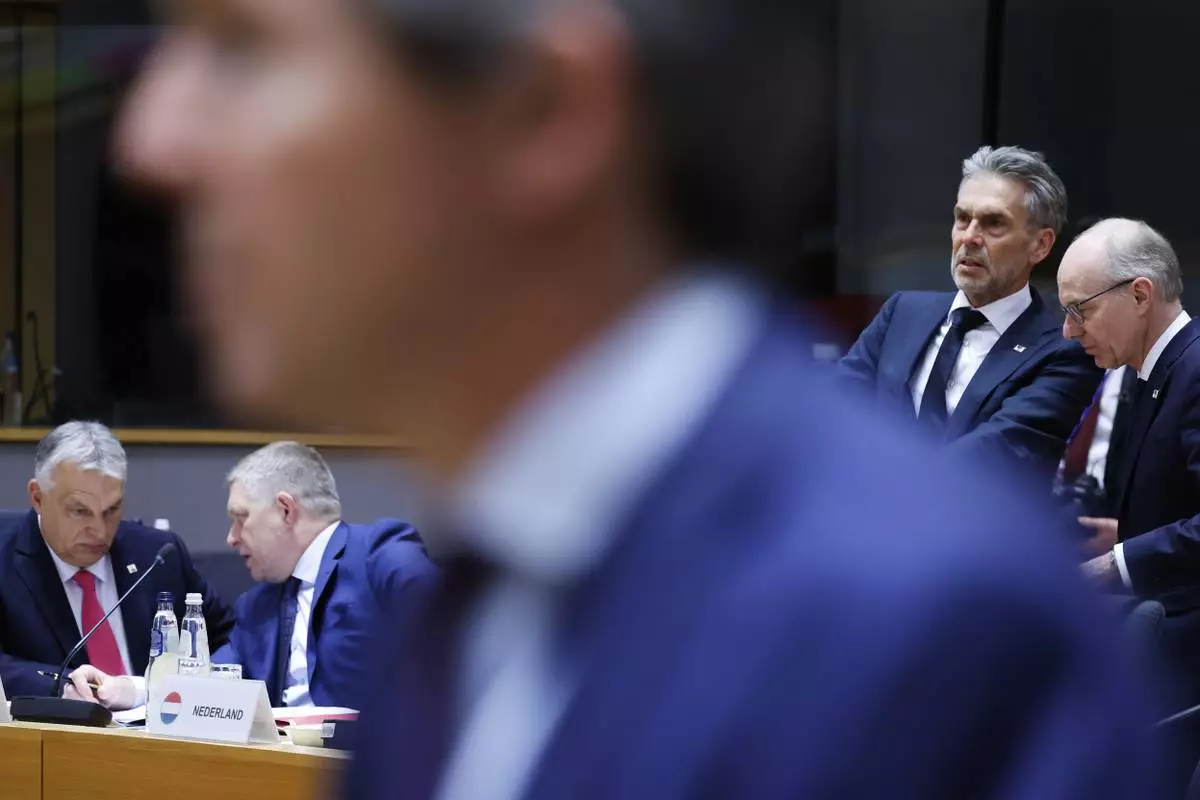
Hungary's Prime Minister Viktor Orban, left, speaks with Slovakia's Prime Minister Robert Fico, second left, as Luxembourg's Prime Minister Luc Frieden, right, speaks with Netherland's Prime Minister Dick Schoof, second right, during a round table meeting at an EU summit in Brussels, Thursday, March 20, 2025. (AP Photo/Omar Havana)
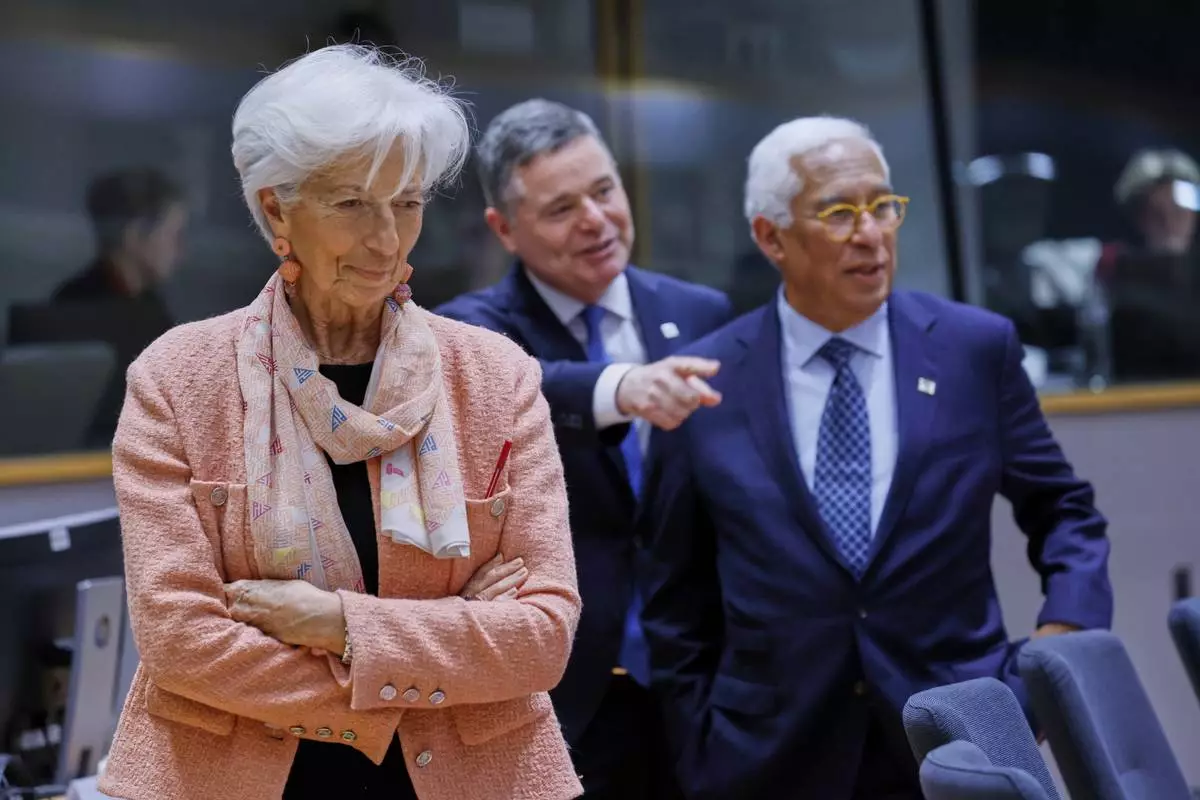
From left, European Central Bank President Christine Lagarde, President of the Eurogroup Paschal Donohoe, and European Council President Antonio Costa during a round table meeting at an EU summit in Brussels, Thursday, March 20, 2025. (AP Photo/Omar Havana)
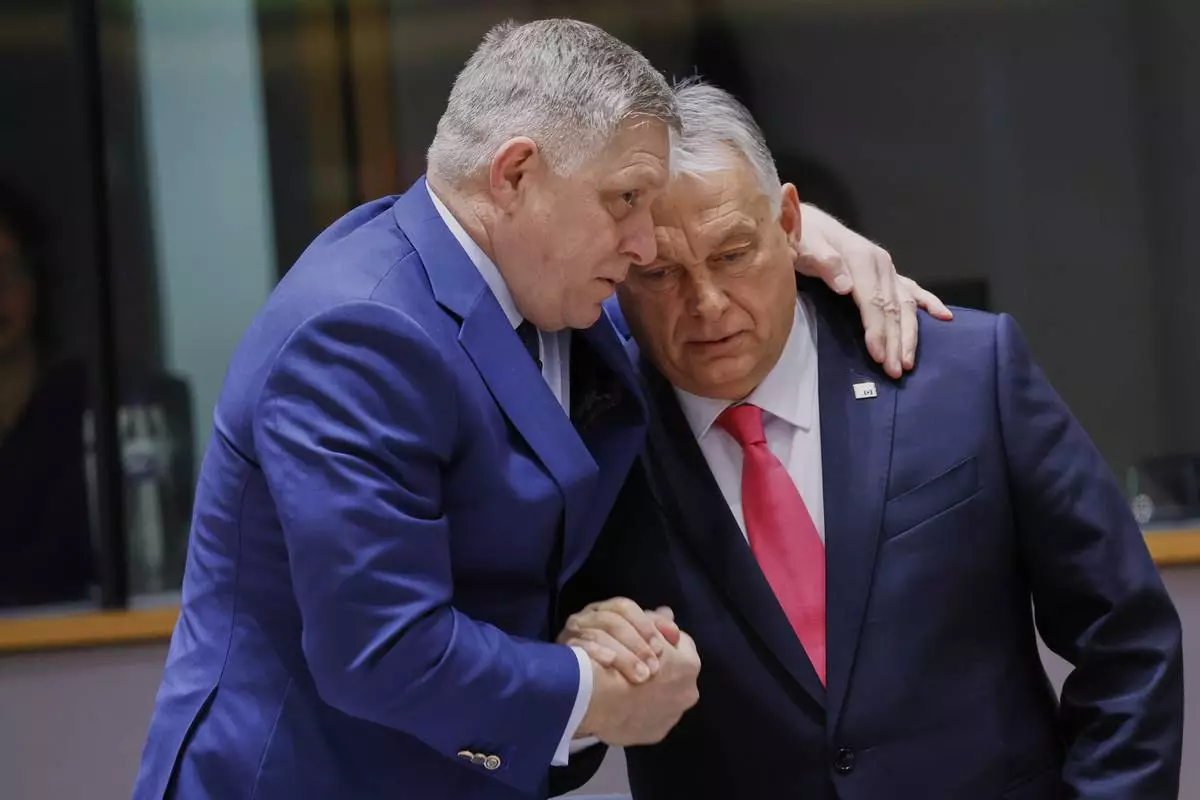
Slovakia's Prime Minister Robert Fico, left, speaks with Hungary's Prime Minister Viktor Orban during a round table meeting at an EU summit in Brussels, Thursday, March 20, 2025. (AP Photo/Omar Havana)
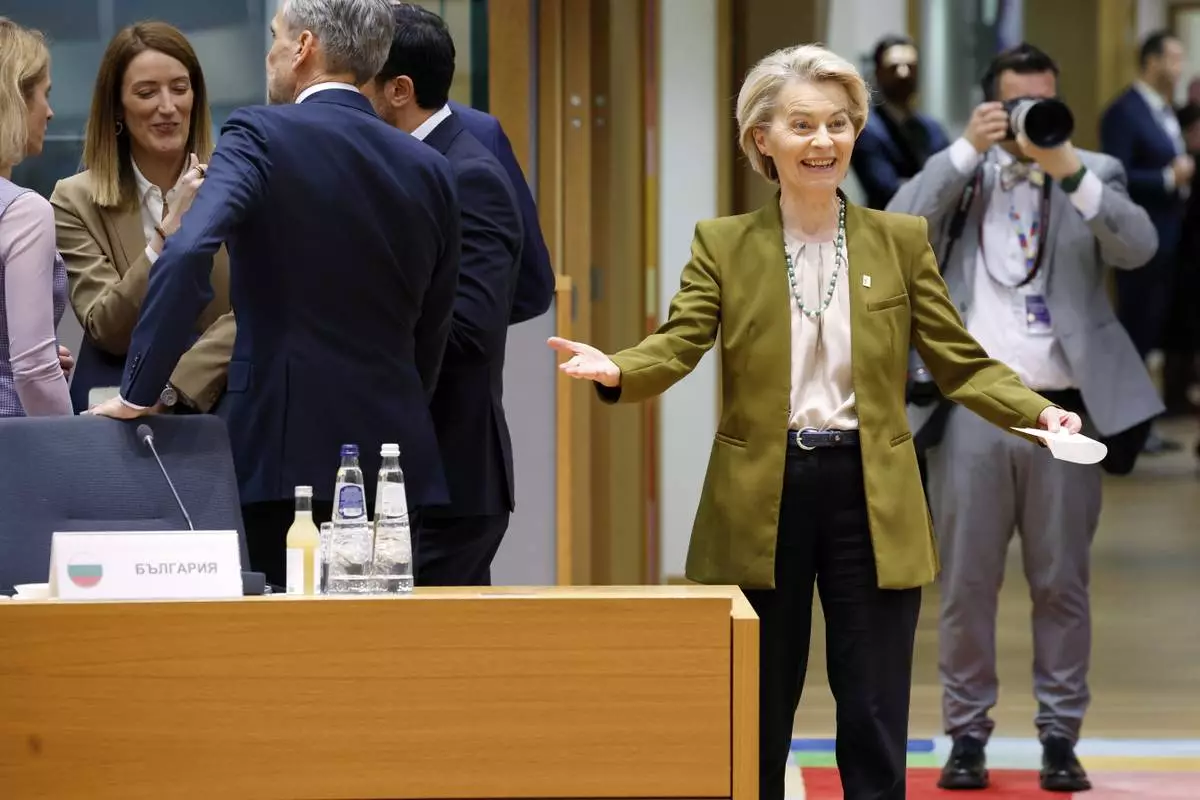
European Commission President Ursula von der Leyen, center, arrives for a round table meeting at an EU summit in Brussels, Thursday, March 20, 2025. (AP Photo/Omar Havana)
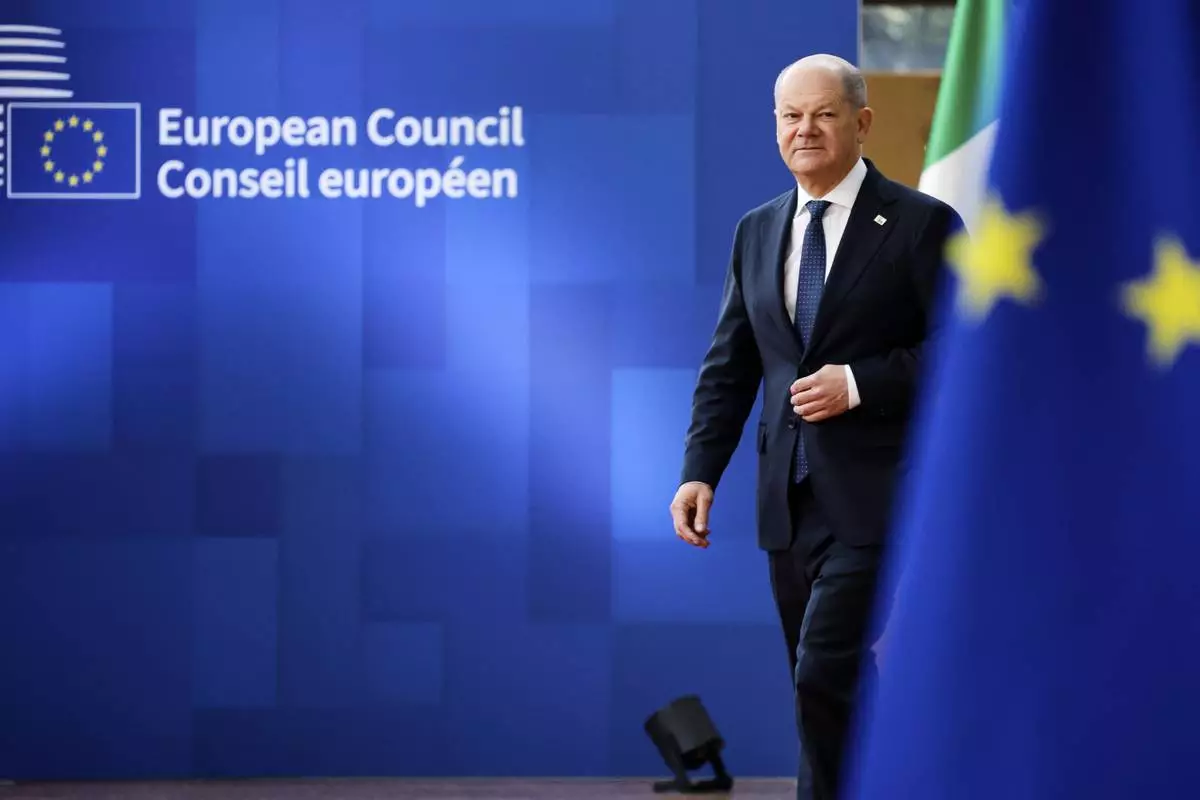
Germany's Chancellor Olaf Scholz arrives for an EU summit at the European Council building in Brussels, Thursday, March 20, 2025. (AP Photo/Geert Vanden Wijngaert)
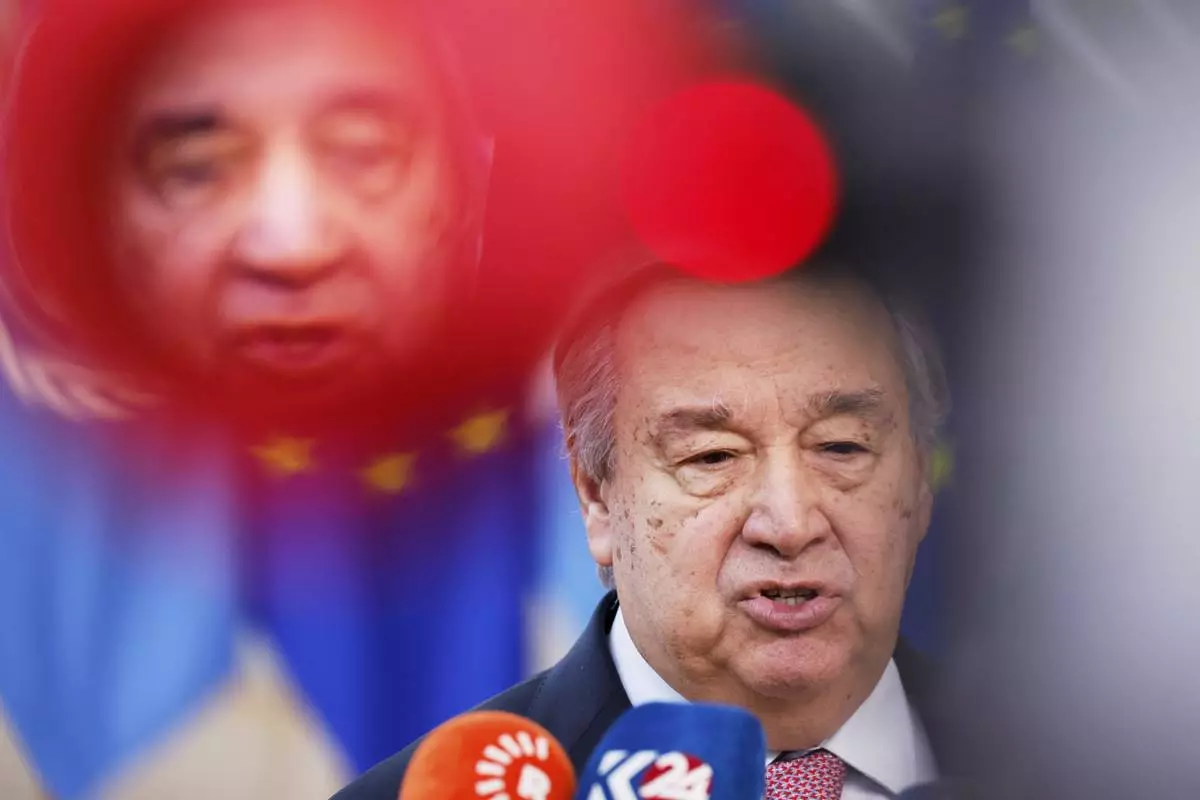
United Nations Secretary General Antonio Guterres is seen through the viewfinder of a television camera as he speaks with the media during an EU summit in Brussels, Thursday, March 20, 2025. (AP Photo/Geert Vanden Wijngaert)













